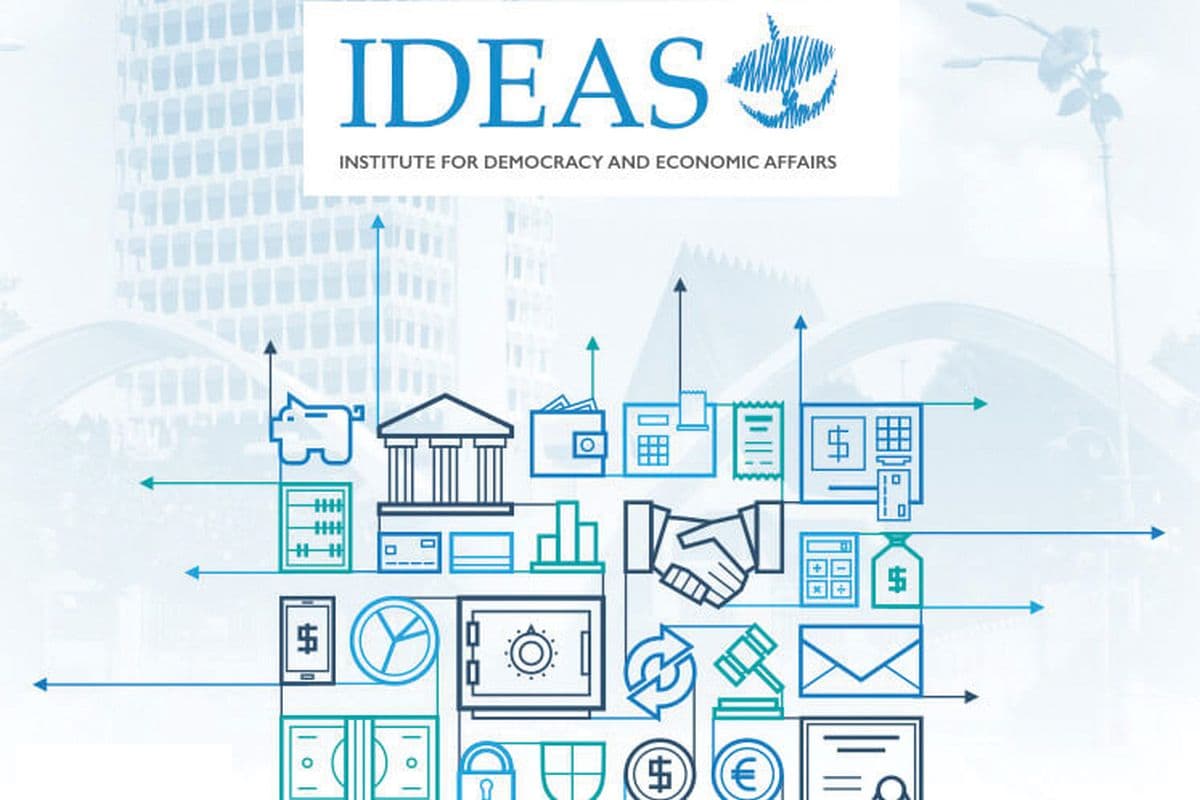
Small and medium enterprises (SMEs) may not have fully benefited from the Government initiatives due to the limitation in capacity and available talents in the field.
KUALA LUMPUR (Jan 27): Public policy nudges towards automation and digitalisation need to match with current industry needs and capacity, said the Institute for Democracy and Economic Affairs (IDEAS).
The think-tank noted that the Covid-19 pandemic was seen by many as an opportunity to accelerate automation and digital adoption, and the Government offered various grants and allocations for businesses to get onboard digital platforms.
However, small and medium enterprises (SMEs) may not have fully benefited from these Government initiatives due to the limitation in capacity and available talents in the field, IDEAS research director Laurence Todd said when presenting a report entitled “Post Covid-19 Recovery: Building SME Resilience” via a webinar today.
For example, he said the fourth industrial revolution (IR4.0) grants and loans are targeted towards high-tech projects that SMEs in the manufacturing sector would not have the technical skills or capacity to undertake as the they mainly populate the low value added or labour-intensive sub sector.
Also, initiatives to get retailers onto e-commerce have not accounted for major costs and skills needed for a sustainable pivot towards digitalization, noted Todd.
He said the costs incurred on digital marketing, and high commission fees charged by the e-commerce platforms, have caused SMEs and micro-enterprises to shy away from adopting digitalisation.
As for the battered tourism sector, Todd said the Government’s digitalisation initiatives must also address the underlying structural challenges faced by tourism SMEs.
“The fear of competition due to the uneven playing field is undermining motivation to invest in innovations among travel agencies,” he said.
For instance, the SMEs in the tourism sector are not confident of competing with larger online travel agents such as Expedia and Traveloka, he said.
Travel agencies are also worried about the uncertain outcome of investment as they believe that there is a greater risk of returns if they were to trade their tour packages online rather than offline, given their failed digitalisation investments in the past.
Noting that several economic stimulus packages have been launched by the Government to help sustain businesses, Todd said the measures within the packages may not have benefited a majority of SMEs due to implementation gaps.
He said information asymmetry between industry players and policy makers prevented businesses from applying for beneficial measures, while loopholes in firm size determination guidelines prevented businesses, which had to scale down, from receiving much-needed cash assistance.
Also, untargeted ePenjana cash subsidies meant most of the credits may have been spent on larger notable brands and not SMEs.
“These implementation gaps which may reduce the effectiveness of the measures in helping SMEs survive even for the short term horizons,” said Todd.
More stimulus packages needed to help SMEs if MCO extended
Asked if further economic boosters were needed to help SMEs weather the current economic challenges, Todd said the RM15 billion Malaysian Economic and Rakyat’s Protection Assistance Package (PERMAI) may not suffice.
“(Although) I think the recent PERMAI package is helpful, I have two concerns. First, I do not think the amount is sufficient, especially if the Movement Control Order (MCO) is extended. I believe wage subsidy should be increased.
“Secondly, the package does not sufficiently address the longer term challenges. So I believe further stimulus measures will be needed to achieve this,” he said.
Another speaker at webinar, Malaysian Association of Hotels (MAH) chief executive officer Yap Lip Seng said 85% of the association’s members are requesting a minimum wage subsidy of RM1,200 and above.
Alternatively, the hotel industry proposed a percentage-based subsidy based on pay level. For example, employees with monthly pay up to RM4,000 are allowed to get 50% wage subsidy, while the quantum of wage subsidy is reduced to 30% for employees with higher monthly payment between RM4,001 and RM8,000.
Yap said the hotel industry is expected to suffer a total loss of RM6.53 billion in 2020 on the back of low occupancy rates for hotel rooms. Hence, a larger subsidy is needed from the Government to help the industry sustain during this challenging period.
Asked how soon the tourism sector will recover, Yap quoted the World Tourism Organisation as saying that it will take up to four years for the sector to return to pre-pandemic levels.
He said the reopening of borders would only be one element in driving tourism recovery along with travel confidence and tourism capacity of the destinations. For Malaysia, he foresees industry players will still be highly dependent on domestic tourism for another two years.
"Many are expecting vaccination programs to be the key factor for international travel, but it might not be as simple as that. Malaysia had earlier stated the (Covid-19) vaccination programme will cover 80% of its population by the first quarter of 2022, but a system is needed to track, control and facilitate travel post-vaccination," he added.